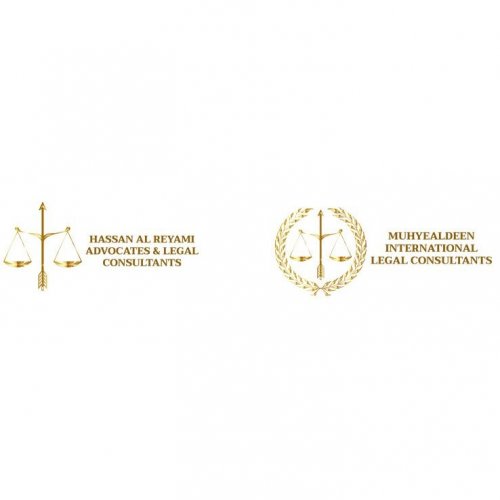Best Probate Lawyers in Abu Dhabi
Share your needs with us, get contacted by law firms.
Free. Takes 2 min.
List of the best lawyers in Abu Dhabi, United Arab Emirates

The Black Robe For Legal Consultancy & Debit Collection
1 hour Free ConsultationAbout Probate Law in Abu Dhabi, United Arab Emirates
Probate law in Abu Dhabi, part of the UAE legal system, is crucial for dealing with the distribution of a deceased person's assets, regardless of their nationality. Probate involves validating the will, paying off any debts, and distributing any remaining assets to the designated beneficiaries. If the deceased didn't leave a will (known as dying intestate), the probate law entails a default distribution system whereby assets are shared among immediate family members according to Sharia Law.
Why You May Need a Lawyer
There are several situations where the services of a probate lawyer might be necessary. If a will is contested or there are disputes among beneficiaries, a legal advisor can help resolve these issues. Additionally, if the estate contains complex assets such as foreign properties or a stake in a business, a lawyer can ensure correct and legal distribution. They can also guide you through the intricacies of Sharia inheritance laws and assist in managing debts and liabilities if the estate doesn't have sufficient funds.
Local Laws Overview
Probate laws in Abu Dhabi are a combination of Islamic Sharia law and local UAE legal provisions. According to Sharia law, the family's male members receive double the share of female members. Non-Muslim foreigners, however, can draft a will according to the laws of their home country, which will be respected in UAE courts. In inheritance matters, real estate properties are handled according to the deceased's nationality laws, but other assets are dealt with according to UAE law.
Frequently Asked Questions
1. What happens if my spouse dies intestate in Abu Dhabi?
In the absence of a will, the deceased's estate is divided according to Sharia successor rules, with male kin usually receiving double the portion of their female counterparts.
2. Can foreigners own property in Abu Dhabi?
Yes, foreign non-resident individuals and companies can own property in designated investment zones in Abu Dhabi.
3. Can a non-Muslim foreigner write a will under their country's legislation?
Yes, Abu Dhabi law allows non-Muslim foreigners to draft a will according to their home country's laws to ensure their assets and children are handled as per their wishes.
4. What are the rights of female heirs in Sharia succession?
Sharia law grants women inheritance rights, but typically, female heirs receive half of what their male counterparts receive.
5. How are debts of the deceased settled?
Distribution of the deceased's assets only occurs after settling all debts and liabilities. If the estate's assets do not suffice, beneficiaries aren't usually responsible for the remaining debts.
Additional Resources
The Judicial Department in Abu Dhabi can provide legal advice and services pertaining to probate matters. You can also engage the services of legal consultants knowledgeable about probate law for personalized assistance.
Next Steps
If you require legal assistance with probate in Abu Dhabi, it is advisable to consult with an experienced legal professional. They can provide tailored guidance, help with necessary paperwork, or represent you in court if disputes arise. It's also important to have a clear understanding of the deceased's assets and liabilities for an effective probate process.
Lawzana helps you find the best lawyers and law firms in Abu Dhabi through a curated and pre-screened list of qualified legal professionals. Our platform offers rankings and detailed profiles of attorneys and law firms, allowing you to compare based on practice areas, including Probate, experience, and client feedback.
Each profile includes a description of the firm's areas of practice, client reviews, team members and partners, year of establishment, spoken languages, office locations, contact information, social media presence, and any published articles or resources. Most firms on our platform speak English and are experienced in both local and international legal matters.
Get a quote from top-rated law firms in Abu Dhabi, United Arab Emirates — quickly, securely, and without unnecessary hassle.
Disclaimer:
The information provided on this page is for general informational purposes only and does not constitute legal advice. While we strive to ensure the accuracy and relevance of the content, legal information may change over time, and interpretations of the law can vary. You should always consult with a qualified legal professional for advice specific to your situation.
We disclaim all liability for actions taken or not taken based on the content of this page. If you believe any information is incorrect or outdated, please contact us, and we will review and update it where appropriate.









